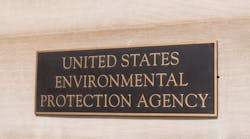A federal appeals court has refused to issue a stay of a district court decision blocking use of an expedited permitting system for new oil and gas pipelines.
Two judges of the US Court of Appeals for the Ninth Circuit on May 28 rejected the stay request from the US Army Corps of Engineers, an array of oil and gas associations, and 18 states.
“Appellants have not demonstrated a sufficient likelihood of success on the merits and probability of irreparable harm to warrant a stay pending appeal,” the court said.
The case stems from a court fight between environmental activists and the Corps of Engineers over the proposed Keystone XL Pipeline, but it can affect any proposed interstate oil or gas pipeline until resolved.
“This ruling could delay the construction of over 70 pipelines this year alone, disrupting half a million well-paying, middle-class sustaining jobs and costing American businesses up to $2 billion,” said Paul Afonso, senior vice-president and chief legal officer of the American Petroleum Institute, in a statement issued by the trade association.
“It is completely appropriate that the district court has singled out natural gas and oil companies to cut out of a long-established regulatory process, when infrastructure and affordable energy are more important than ever to getting people back to work,” Afonso said.
Court fight set for August and later
The case is Northern Plains Resource Council v. US Army Corps of Engineers. In the court of appeals, an opening brief by the Corps of Engineers must be filed by Aug. 21. Environmental groups’ answering brief must be filed by Sept. 21.
Judge Brian Morris of the US District Court for the District of Montana decided to block not only Keystone XL’s permit but all use of Nationwide Permit 12 (NWP 12) for new oil and gas pipelines. Repair and maintenance of oil and gas pipelines will be allowed to use the permit, as will companies wanting to build water pipelines, telecommunications lines, and other infrastructure.
NWP 12 is used to reduce the time and redundancy involved in permitting dozens or hundreds of stream crossings for long-distance lines. Without it, individual permits can be required for each crossing. The Corps of Engineers has authority over such “dredge and fill” permits under the Clean Water Act Section 404.
To oil and gas companies, NWP 12 allows for a valuable streamlining. From their perspective, it is pointless to focus on crossings individually if in each case the crossing will be drilled horizontally beneath the bed of the stream or wetland without disturbing the ecosystem above.
The associations looking to the appellate court for relief include the American Gas Association, the American Petroleum Institute, the Association of Oil Pipe Lines, the Interstate Natural Gas Association of America, and the National Rural Electric Cooperative Association.
Morris went beyond what even the environmental group plaintiffs had requested in issuing his order. He ruled the Corps of Engineers must consult with the US Fish and Wildlife Service on endangered species before it can continue using NWP 12 for new oil and gas lines.
At the Ninth Circuit, Judges Barry Silverman and Jacqueline Nguyen rejected the request for a stay. Silverman was nominated to his position by President Clinton. Nguyen was an Obama choice, as was Morris at the district court.
